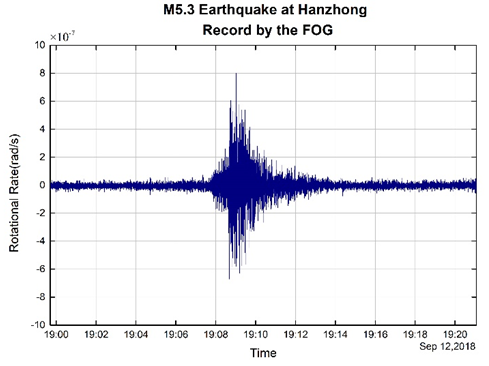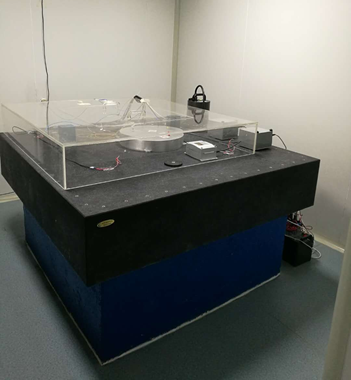An M 5.3 earthquake occurred at 19:06:34 on Sept. 12nd, 2018 in Ningqiang, Hanzhong city, Shaanxi province, China. It was also successfully recorded by the fiber optic gyroscope (FOG) at National Time Service Center (NTSC) with ~85 seconds delay after the initial earthquake.
The FOG is collaboratively developed by NTSC and Peking University with aim to measure the Universal Time (UT1) with high precision for the applications of national time service, space science & technology, geophysics, etc. The FOG based on Sngnac effect is used to measure the spin rate with high precision and real-time performance. It is well known for low maintenance requirements, small environment sensitivity, high reliability and long lifetime, mostly due to its all solid structure and no moving part, thus it provides a unique method to implement the UT1 measurement systems.
As required by the high precision measurement, we put this FOG in a laboratory with 30 meters below the ground, where the stable temperature & humidity conditions, as well as low level vibration provide an ideal base for the gyroscope. The detected seismic signal shows the rotation component (1D) of this earthquake, which is an important information for the seismology and earthquake forecasting. With the further improvement and upgrade, giant-FOG will become a powerful tool for UT1 measurement, geophysics, general relativity, etc.

The detected seismic signal by FOG. (Image by NTSC)

Fiber Optic Gyroscope (Image by NTSC)
 Print
Print